 Weird Stuff
Weird Stuff  Weird Stuff
Weird Stuff  Mysteries
Mysteries 10 Tragic Disappearances and Deaths in Joshua Tree National Park
 History
History 10 Ways Childhood Really Sucked in the Old West
 Music
Music 10 Name Origins of Famous Bands from the 1990s
 Religion
Religion 10 Biggest Turnarounds by the Catholic Church
 Weird Stuff
Weird Stuff 10 Unbelievable Times Laws Had Unintended Consequences
 Humans
Humans Ten Historic Women Who Deserve Way More Credit Than They Got
 Movies and TV
Movies and TV 10 Films That Spawned Major Lawsuits
 History
History Ten Times Towns Were Wiped Off the Face of the Earth
 Creepy
Creepy 10 of the Most Disturbingly Haunted Public Houses in the UK
 Weird Stuff
Weird Stuff 10 Niche Subcultures That Are More Popular Than You Might Think
 Mysteries
Mysteries 10 Tragic Disappearances and Deaths in Joshua Tree National Park
 History
History 10 Ways Childhood Really Sucked in the Old West
Who's Behind Listverse?

Jamie Frater
Head Editor
Jamie founded Listverse due to an insatiable desire to share fascinating, obscure, and bizarre facts. He has been a guest speaker on numerous national radio and television stations and is a five time published author.
More About Us Music
Music 10 Name Origins of Famous Bands from the 1990s
 Religion
Religion 10 Biggest Turnarounds by the Catholic Church
 Weird Stuff
Weird Stuff 10 Unbelievable Times Laws Had Unintended Consequences
 Humans
Humans Ten Historic Women Who Deserve Way More Credit Than They Got
 Movies and TV
Movies and TV 10 Films That Spawned Major Lawsuits
 History
History Ten Times Towns Were Wiped Off the Face of the Earth
 Creepy
Creepy 10 of the Most Disturbingly Haunted Public Houses in the UK
10 Ridiculous Attempts to Legislate Personal Responsibility
As George Carlin once noticed, there are a lot of really stupid people in the world. They’re the reason there are signs on roller coasters saying “Please Stay Inside The Car” and warnings on coffee cups saying, “Careful, This Is Hot”. Rules are OK. People need rules, because they have a tendency to try to kill themselves for fun. We don’t have a problem with rules.
What we kind of have a problem with are laws specifically designed to keep adult human beings from engaging in behavior that may be indulgent, but should not be illegal. And really, may not even be all that damn indulgent. These are serious attempts by lawmakers—some successful, some not so much—to protect you from your own probably-not-all-that-bad decisions.
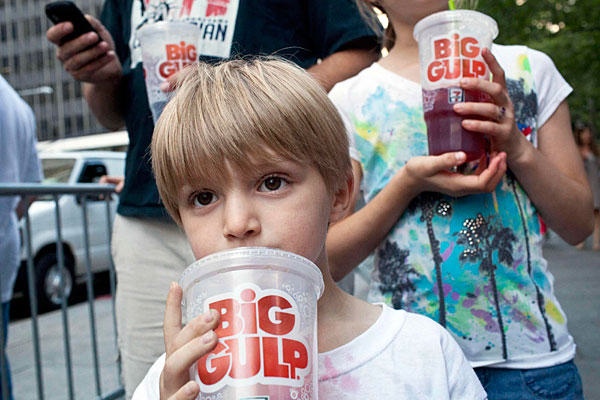
Ban: New York City Bans Large Sodas
When most people read in 2012 that the New York City Board of Health had voted to ban all sodas over sixteen ounces in an attempt to curb obesity among New Yorkers, their first reaction was to make sure they weren’t reading the Onion. Yet, despite a poll showing that a majority of New Yorkers thought this was silly, the ordinance went into effect in September of that year.
Oddly, the citywide ban applies specifically to establishments that require health inspections—restaurants, street carts and movie theaters—but not convenience stores, which means that 7-11 can keep selling Big Gulps all the live-long day. Most newsstands and vending machines are also exempt.
While this must have looked good on paper somehow, perhaps they should have read the proposal aloud before approving it, because the notion that banning large sodas could “help save lives”—which actually came out of Mayor Michael Bloomberg’s mouth—is objectively ridiculous. Not that this has stopped other major cities from following suit.
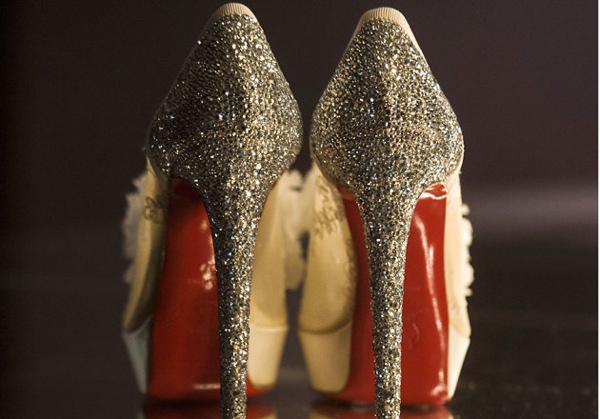
Ban: European Union Wants To Ban High Heels, Jewelry For Hairdressers
In a move that would prevent absolutely nothing, the EU has legislation on the table that would prohibit hairdressers throughout Europe from wearing high heels (for safety reasons, ostensibly) and jewelry, including wedding rings (which are apparently “unsanitary” and lead to . . . hair infections? We can’t be sure). This in spite of the curious lack of increases in catastrophic high-heel or jewelry related accidents at any time in the history of salons, throughout the civilized world, ever.
The legislation would also limit the number of haircuts per day to prevent “emotional collapses” (really) and actually mandates “social dialogue”—that is, encourages gossip—for “mental well-being”. Because apparently women are strange, alien creatures who constantly teeter on the brink of physical and emotional disintegration, in the minds of some European legislators. The legislation is still pending.
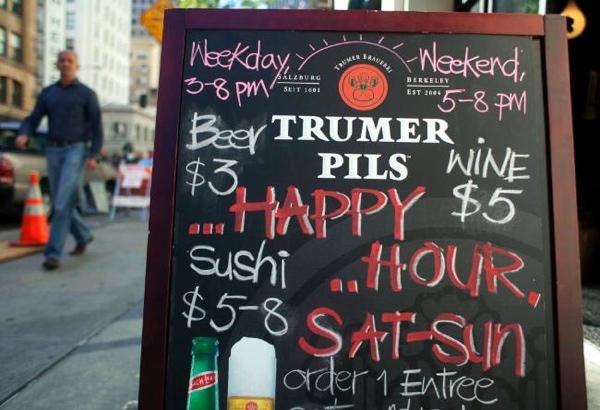
Ban: Massachusetts’ Happy Hour Ban
Since 1984, happy hours—or reduced-priced drink specials of any kind—have been banned in the state of Massachusetts. The original law came about in response to a drunk driving fatality caused by a guy who drank seven beers during happy hour, and then hit the road like a jackass.
Drunk driving is not only stupid and irresponsible, it’s criminal. Everyone can agree on that, but business owners feel that the happy hour law inhibits their ability to compete with casinos (who legally give drinks away to gamblers for free) and does not reduce the behavior it’s intended to prevent—anyone can still buy eighteen vodka tonics, it’s just going to cost them more.
Illustrating that this law simply doesn’t work is the fact that, in spite of this nearly thirty year old ban, Boston was recently named the drunkest city in America two years running.

Ban: The UK Bans Gory Movies
When home video began taking off in the late ’70s, it resulted in a bit of a moral panic in the UK over the supposed ready availability to children of violent horror films. Titles like Driller Killer and Don’t Go In The Woods got up the ire of many a conservative politician, and the Video Recordings Act of 1984 was intended to clarify the nature of what had come to be called “Video Nasties” and regulate their exhibition.
Under the act, the British Board of Film Classification (pretty much the UK version of the MPAA) were given power to classify home video releases separately from cinema releases. Seventy-two films were banned outright from home release. Thirty-nine were actually prosecuted under the Obscene Publications Act (which sounds more like the US in the ’50s than the UK in the ’80s).
Most of the banned films were eventually released in some form, usually with tons of cuts. Inevitably, the original list contains a few bonafide classics like Dario Argento’s Inferno and Sam Raimi’s Evil Dead among all the schlock, and the notion that violent media—from horror movies to gangster rap to video games—causes violent behavior continues to be constantly discussed, despite a severe lack of evidence. Sadly, the common sense notion that parents, and not the government, should be responsible for the entertainment that their children consume does not enter the discussion nearly as often.
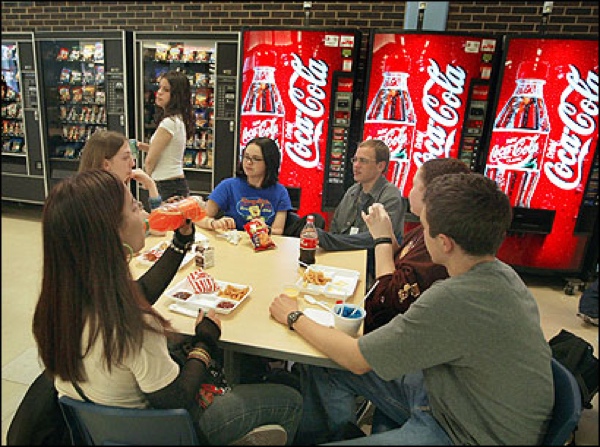
Ban: Utah School Fined $15,000 For Selling Soda
Believe it or not, there is a Federal law in the US governing the selling of soda in school cafeterias during lunch hours. That is, it is prohibited. Schools must turn off soda vending machines during their lunch periods, and it’s not like kids can just buy the sodas earlier, before the machines are turned off, and drink them at lunch. Nor can they simply go off campus and eat and drink whatever the hell they want. Wait! Of course they can.
Davis High in Utah wasn’t even purposefully in violation of the rule—they faithfully turned off the cafeteria soda machines for the crucial forty-seven minutes every day, but management overlooked the one in the school bookstore. Somehow, the Feds found out about this brazen violation and brought the hammer down, to the tune of seventy-five cents per soda that was sold during the offending time periods. The thing is, this had been going on for quite some time. The fine came to over fifteen thousand dollars—and it was enforced.
As a result, the school was forced to cut funding to some of its fine arts programs, which we don’t really think was the intent of the law. But that’s just the thing—if the intent of the law is to cut sugar consumption among students, then it’s failed. Students can still get sports drinks, which have just as much sugar (but are, you know, for sports and stuff) and Snickers bars (because they contain nuts—yes, seriously) right there in the cafeteria during the time frame in question. Or they can just go across the street to Walmart and get a Coke.
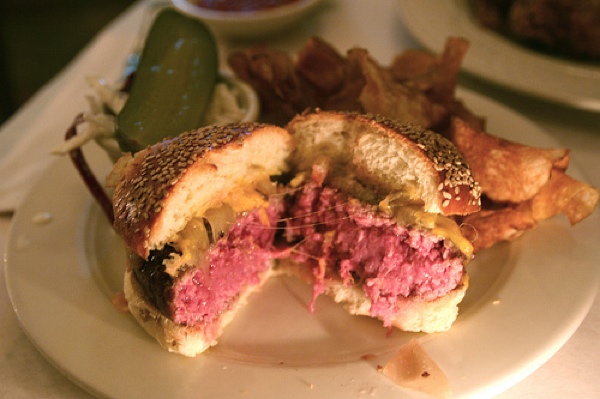
Ban: City Council Bans Rare/Medium Rare Hamburgers
Restaurant owners in Westminster (UK) have been told by the city council to stop selling rare or even medium rare burgers. Only this one city council—so far—has given its health inspectors the power to bring the pain to restaurants that offer their customers this choice, but several more are considering following suit.
Many gourmet restaurants, including one owned by shoutmaster Gordon Ramsay, have been threatened with getting shut down if they continue to sell “undercooked” product, even though they follow strict safety standards, and sell said product to adults who are probably capable of determining how they want their burgers cooked.
Said the council’s food health and safety manager: “This is about making sure customers are eating meat that is not a threat to their health. It is possible to produce burgers that can be eaten undercooked, but strict controls are essential.” Like the ones that professional chefs are perfectly capable of observing.
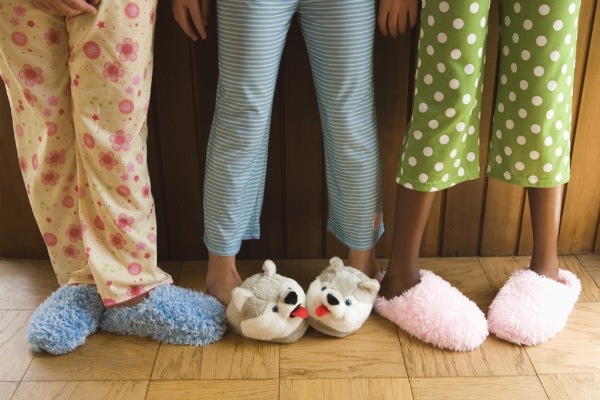
Ban: Louisiana’s Public PJ Ban
Caddo Parish Commissioner Michael Williams attempted in 2012 to enact a ban on the wearing of pajamas in public. Not for any health or safety reason, but because what the hell, pajamas in public? Society is crumbling all around us!
The measure failed, unsurprisingly—but just as unsurprisingly, Williams is determined to re-introduce the legislation soon. In fact, in a fire-and-brimstone speech after the measure’s failure, he announced his intention to begin a letter-writing campaign to Targets and Best Buys around the country (for what purpose is not clear, but we like to imagine nightgowns kept under lock and key and two-PJ-limits for all customers) as well as to churches, lawmakers and business leaders to express his stance on public pajama wearing, in case it’s not already painfully clear.
We’re not sure what caused this man’s severe disdain for PJs, and we don’t think we want to know. So far voters and lawmakers are not taking Williams’ proposals quite as seriously as he is, but then again, nobody has ever taken anything this seriously.
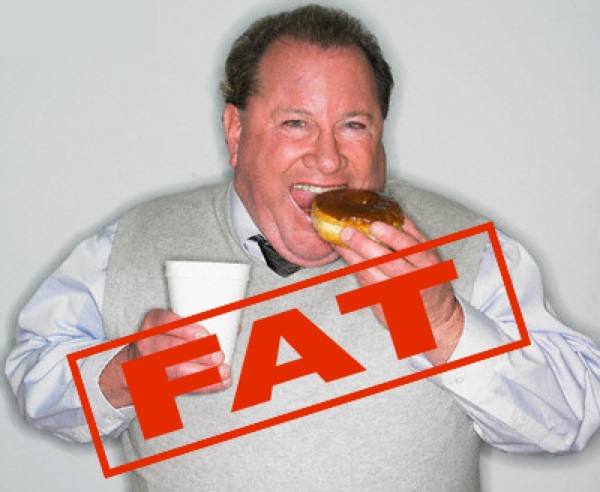
Ban: Denmark Enacts General Fat Tax
Yes, Denmark has become the first nation in the world to tax fatty foods, applying a surcharge to any food that contains over a certain amount of saturated fat. Slimmed-down Danish citizens must now pay through the nose for cheese, butter, milk and other staples, in addition to the sweets and ultra-fatty items the tax is meant to target.
Of course, this led to hoarding of such foods in advance of the measure being enacted, which is sort of exactly the behavior that the tax is intended to prevent. For that matter, it has been illegal since 2004 for Danish foods to have over two percent trans fats, and Denmark has also hiked taxes on ice cream and chocolate in the past.
Of course, Denmark doesn’t really have an obesity issue like some countries (cough cough United States) with only about ten percent of its citizens considered to be obese. Perhaps this is partially a result of its policies on fatty foods, but more likely it’s because Danes just don’t like crap food as much as Americans do, as evidenced by the fact that the citizenry allowed this tax to pass.
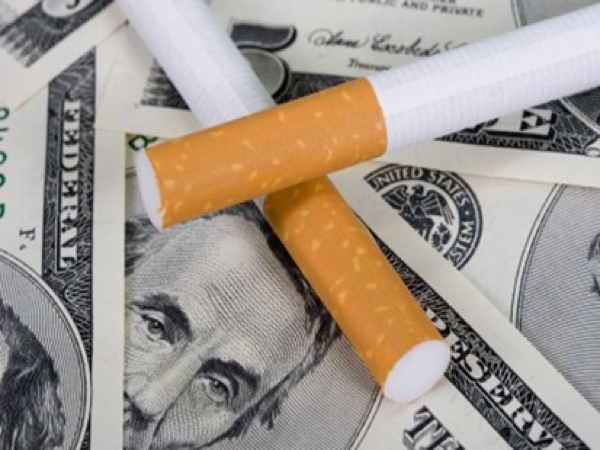
Ban: New Zealand’s Plan To Tax Cigarettes Into Oblivion
US policies to curb smoking have been pretty effective—adult smokers have dropped by one half in the last four decades or so in the US. While higher taxes and restrictive legislation has played a part, so has education—everyone knows smoking is bad for you, and doing it for too long can kill you. But where we here in the US see success, New Zealand sees the fact that some people still smoke, and this is unacceptable—in fact, the plan is to rid the country of tobacco entirely by 2025.
How? For starters, the taxes currently in effect mean that a pack of smokes in New Zealand costs about fifteen bucks, substantially higher than even New York City, where everything costs way too much. Shopkeepers must keep cigarettes hidden from view, and where US policies are governed by individual states, New Zealand’s are national—making it nearly impossible for any black market in tobacco to take hold.
But taxes are still seen as the primary means to discourage the habit, and one model currently being discussed would eventually raise the price of a pack to a hundred dollars. That is not a typo. A hundred dollars per pack. We’re sure no hoarding will take place once that tax is announced to the public.

Ban: France Bans Ketchup In School Cafeterias
And finally, we come to France. While US lawmakers considered classifying ketchup as a vegetable in the early ’80s to allow schools more leeway in planning their menus, the French decided to ban it entirely in schools—well, not entirely. And that’s where it gets weird.
The government enacted a law banning all school and college cafeterias from offering ketchup—except when served with french fries, of all things. That’s right—if you’re in a French cafeteria, there will be ketchup. Go ahead, put some on your fries. But don’t you even think about putting any on your burger, or that hammer comes down.
About: You can check out Floorwalker’s blog or Twitter, if you’re into that sort of thing.








